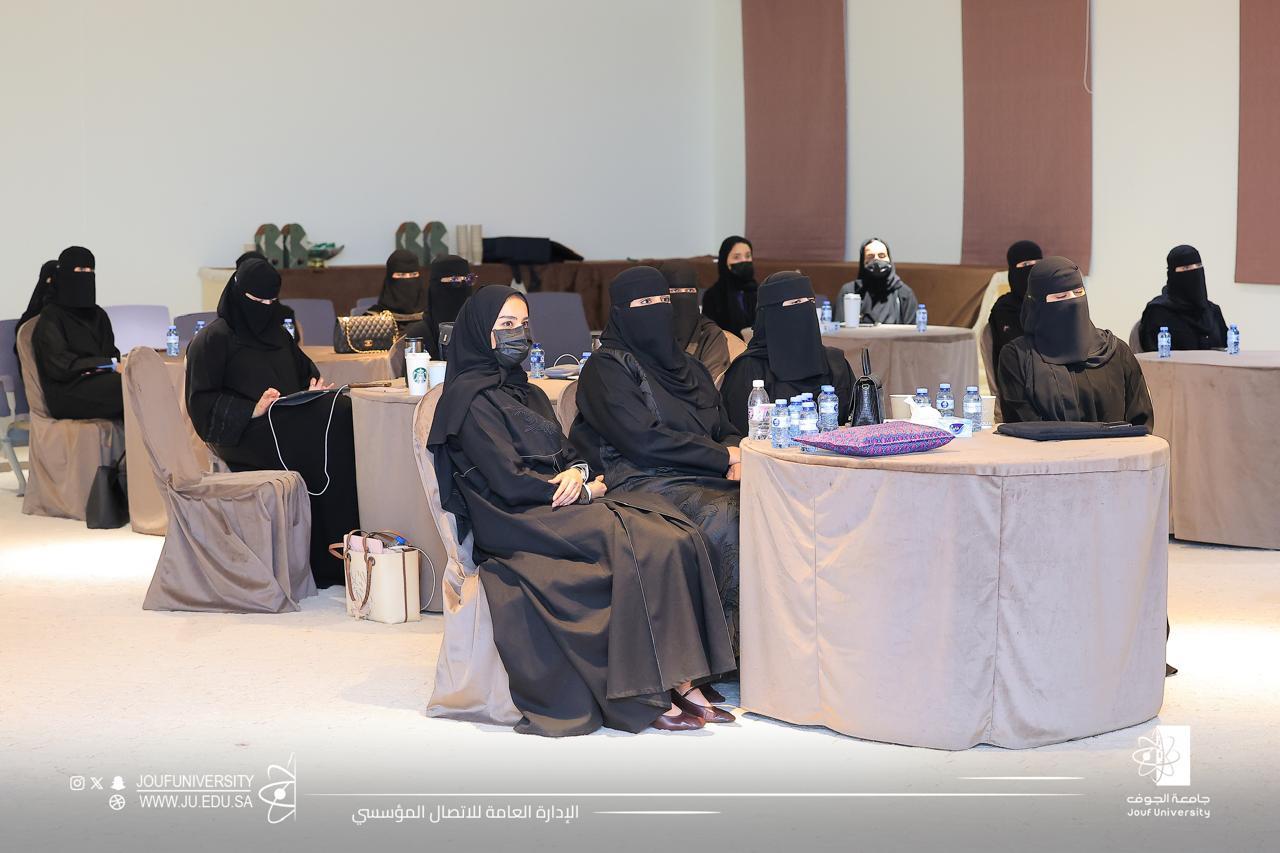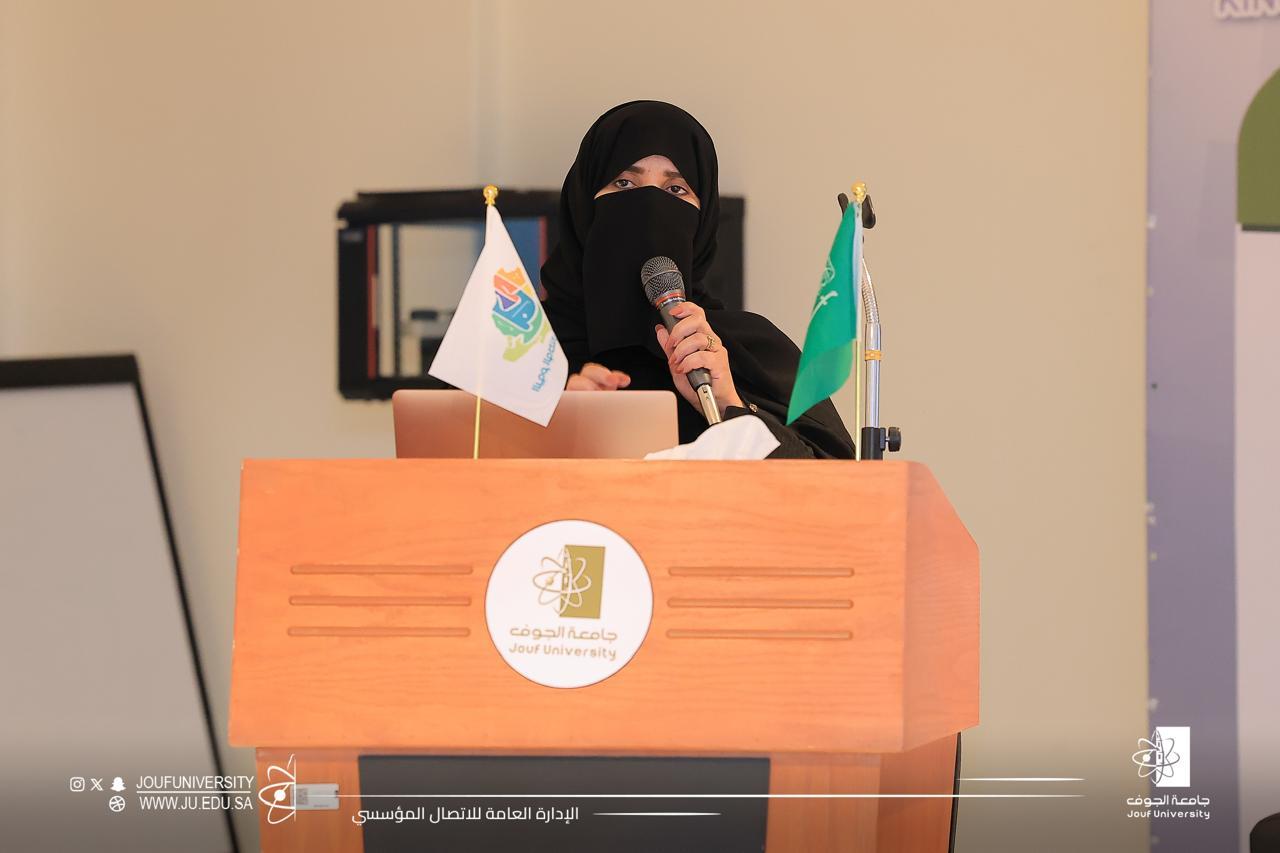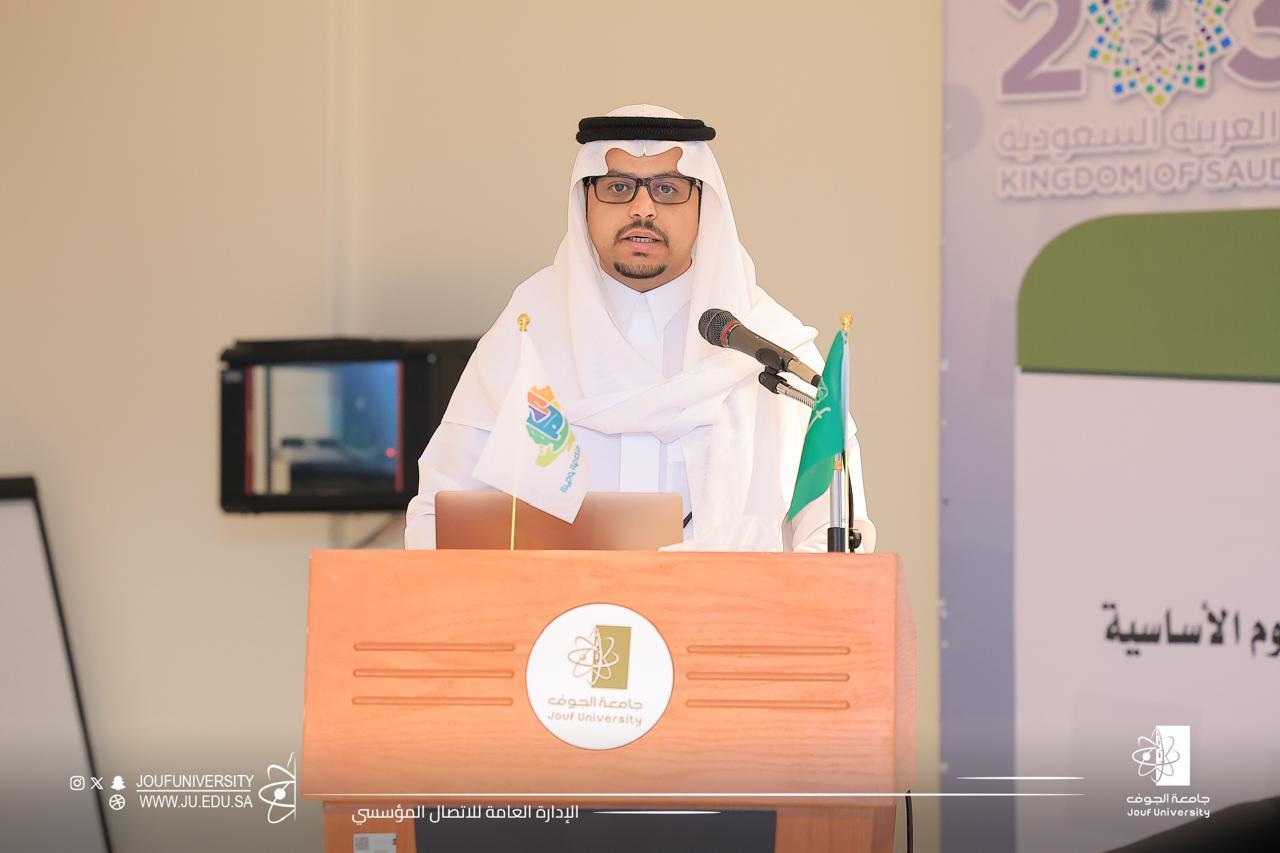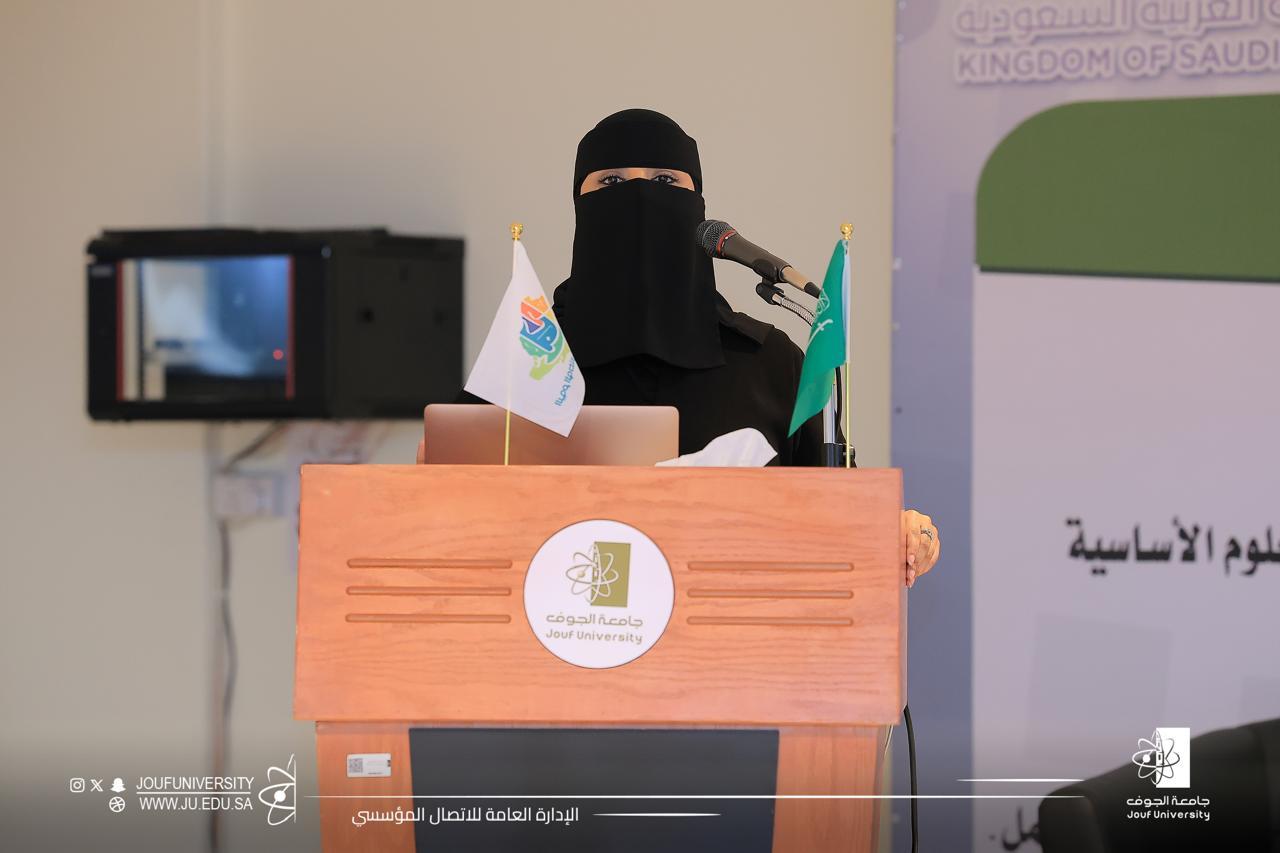The Chair of Prince Nawwaf bin Abdul-Aziz for Sustainable Development and in Cooperation with the College of Computer and Information Sciences Organizes a Training Course Titled "Artificial Intelligence: The Engine of Sustainable Development
As part of its series of activities, and in cooperation with the College of Computer and Information Sciences, the Prince Nawwaf bin Abdul-Aziz' Chair for Sustainable Development organized a training course titled "Artificial Intelligence: The Engine of Sustainable Development." This course stems from the university' commitment to building advanced cognitive capabilities in the fields of modern technology and empowering its students and staff with digital transformation tools, in line with the goals of the Kingdom's Vision 2030 and enhancing its contribution to the comprehensive national development.
Dr. Kholoud bint Salem Al-Shadhoukhi moderated the training course who introducing the symposium and its objectives.


The training course covered three themes:
The first theme entitled; "The Sustainable Development and the Fundamentals of Artificial Intelligence", presented by Dr. Menwah bint Haif Al-Shammari. This session manipulated the fundamentals of artificial intelligence, defining key concepts such as machine learning, natural language processing, and computer vision, with a focus on how these technologies can be employed to support sustainable development initiatives and achieve efficiency in various sectors such as Health, Agriculture, and Energy. The theme aims to build a comprehensive awareness of the complementary relationship between artificial intelligence and sustainable development and highlight the future opportunities offered by modern technologies to achieve a more advanced and sustainable society.
The second session, presented by Dr. Hamed bin Hamed Al-Shammari, revolved around "The Applications of Artificial Intelligence and the Internet of Things in the Service of Development".
It addressed the role of Artificial Intelligence and the Internet of Things as key tools to support modern development efforts by providing smart and sustainable solutions to address environmental, health, and educational challenges. These technologies have become an integral part of global and local development strategies, given their tremendous potential for data analysis, intelligent decision-making, and improving quality of life.


The third session, presented by Dr. Ghadah bint Nayef Al-Waked, focused on "AI Ethics and the Future Opportunities".
The session addressed the definition and concept of AI Ethics, which comprises a set of values, principles, and methods to guide ethical behavior in developing the use of AI technologies. It also highlighted the importance of establishing policies and rules for AI practices, clarified the challenges facing governments and institutions, and summarized the most important ethical principles and practices through which these challenges can be manipulated.




